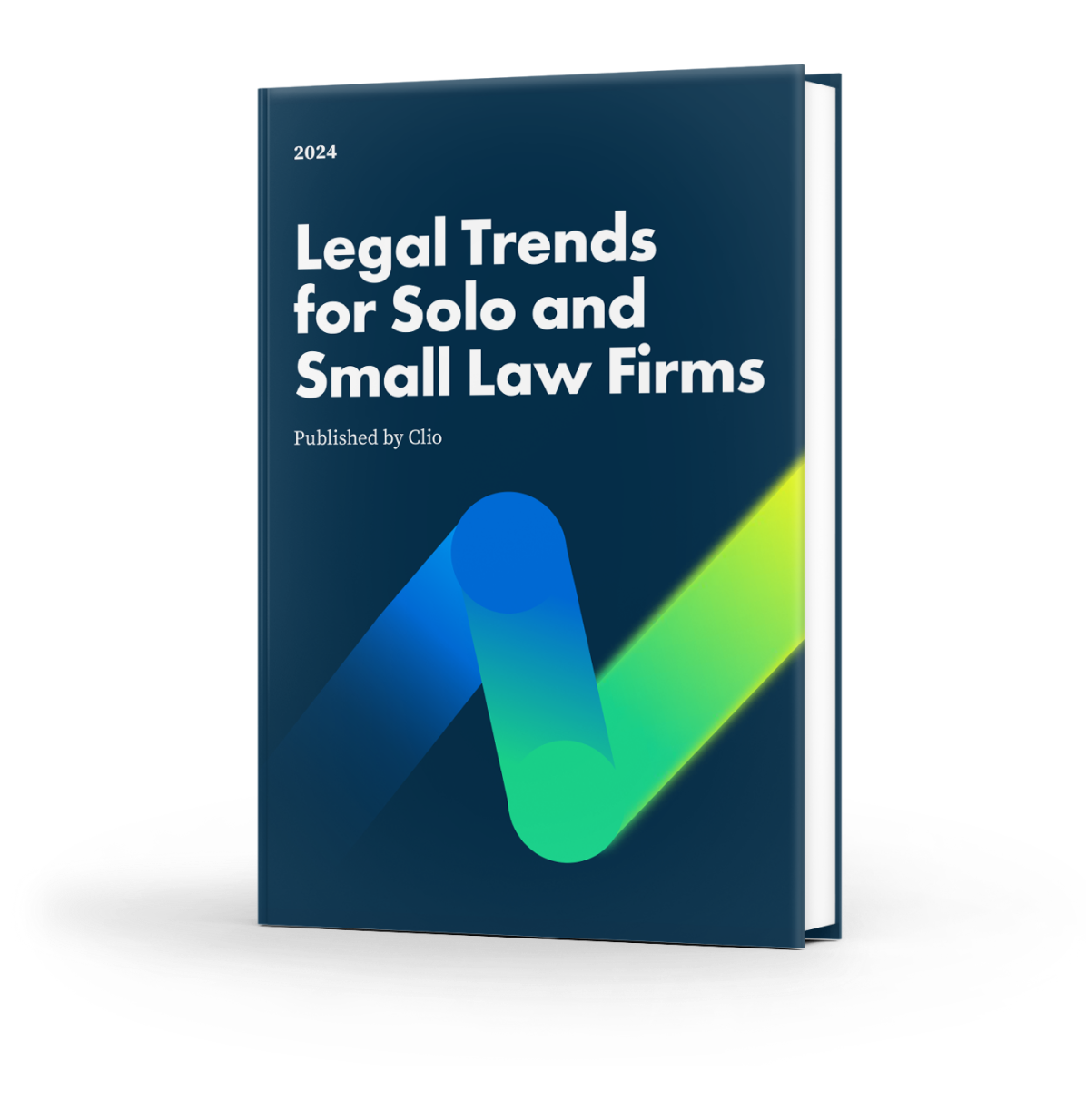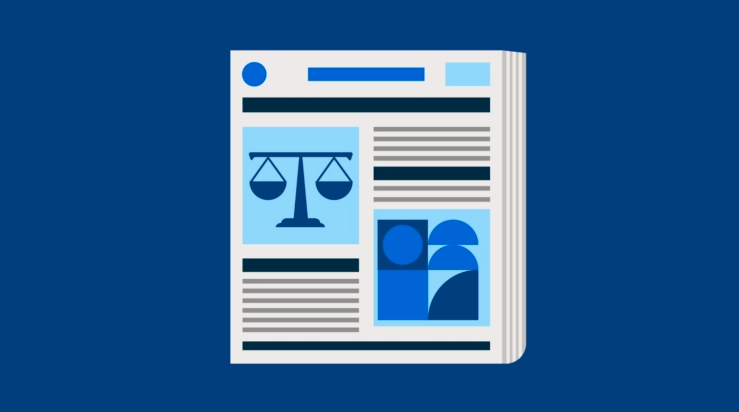Artificial intelligence (AI) is becoming a commonplace technology that helps us navigate our personal and professional lives with greater ease and convenience. Whether you realise it or not, AI impacts your day-to-day life—from ChatGPT, the Live Chat on your favourite e-commerce site, facial recognition that unlocks your phone, or the ETA for your Uber ride. Predictive AI-driven algorithms influence everything from Amazon product recommendations (e.g., “customers who bought this item also bought”) to what you see in your Twitter feed and what Google ads appear when you search.
While still in the early adoption phase in many industries, the impact of AI can be seen across multiple business functions—from sales and marketing (e.g., chatbots like ChatGPT), legal (e.g., Harvey AI), accounting, human resources (automated candidate screening) to IT systems management, building maintenance (heating and cooling systems), and manufacturing (inventory management).
Despite the legal industry’s long-standing hesitancy to adopt new technology, AI is also beginning to make its mark on law firms. AI in law firms can deliver significant efficiency and cost-saving benefits for your practice, helping automate routine tasks such as legal research and analysis, document management, and billing. Let’s explore what AI is and how lawyer AI can help your firm thrive.
A Lawyer’s Guide to Artificial Intelligence
Read our free guide on artificial intelligence for law firms. It’s a great way to learn what exactly AI is, how it relates to law and its practical applications in law firms like yours.
Download Guide NowWhat is artificial intelligence?
Artificial intelligence or AI refers to a machine taught to perform one or more human tasks. For example, you can use your smartphone to remind yourself to call your friend Alex every Wednesday at 5:00 p.m. And every Wednesday, you’ll receive that reminder—until you tell your smartphone to stop sending it. This automated notification is an example of how AI mimics human intelligence to perform a task.
You may have also heard the phrase “machine learning.” While the terms artificial intelligence and machine learning are often used interchangeably, they are different concepts.
Will AI replace lawyers?
AI tools undoubtedly present opportunities for lawyers. Automation saves lawyers time that would otherwise be spent helping clients and taking on more billable work.
However, there are also challenges AI presents that legal professionals should be aware of. Lawyers need to understand their ethical obligations when using AI technologies.
While AI can save lawyers time, support automation, and even add a flare to one’s legal writing, it’s not here to steal jobs away from human beings. And having fear about technology which can save you and your firm time, might be holding you back from helping even more clients.
Machine learning vs. AI
Machine learning is a subset of AI. It refers to humans training machines to learn based on data input. As opposed to simply performing (or mimicking) a human task, machine learning looks for patterns in data to draw conclusions. Once the machine learns to draw one correct conclusion, it can apply those conclusions to new data.
If we consider the example of the phone call reminder, let’s say you didn’t set a weekly reminder to call Alex, but you’ve called Alex every Wednesday at 5:00 p.m. for the past two months. A machine-learning smartphone would recognise this pattern. So if you don’t call Alex next Wednesday, it could automatically send you a reminder—because it learned the pattern.
You may like these posts
How can lawyers use AI in law firms?
The legal industry currently uses AI in many aspects of its work. Artificial intelligence in law firms may not be explicitly noticeable—but it helps lawyers and paralegals do their jobs better. Specifically, AI in law firms helps legal professionals transform their practice by putting clients first in an unprecedented way.
Below are just a few of the ways innovative law firms can take advantage of artificial intelligence in their firms.
Legal research
AI-powered legal research software allows legal professionals to quickly scan and search large databases of regulations, statutes, practice areas, jurisdictions, case laws, and more. With legal research software, lawyers can gather data and help them understand precedents. Conducting more comprehensive research at faster speeds saves lawyers time and saves clients money. Tools that integrate with practice management software enable users to conduct and attach research directly to relevant case details.
InfoTrack provides a range of legal information services and tools, designed to help lawyers access and utilise data from various sources, such as Land Registry, Companies House, and HMRC.
With InfoTrack, you don’t need a subscription; instead, you pay only for the services you use. Plus, InfoTrack integrates seamlessly with Clio, allowing fields to automatically populate from your matter. This integration boosts your efficiency, saves time, and minimizes the potential for errors.
Document management and automation
While law firms continue to move away from paper documents, electronic document storage has similar challenges as hard copy document storage. Electronic records take less physical space, but sorting and finding documents is still challenging.
Using tagging and profiling functionality, AI-driven document management software stores and organises legal files, including contracts, case files, notes, emails, etc. This method of storing and organising digital files, along with full-text search, makes documents a lot easier to find.
Document management solutions also enable document ID and check-in/check-out privileges to maintain version control and security. Also, document management software can connect to other systems like Microsoft Office to easily share files with others.
Document automation helps law firms create documents using intelligent templates; legal professionals can automatically fill form fields directly from case records into the templates, saving time and effort. Legal document automation provides a centralised and efficient process for producing letters, agreements, motions, pleading, bills, invoices, and other legal documents.
Due diligence
Conducting due diligence often requires legal professionals to review a large number of documents, such as contracts. As with other document-related challenges, AI can help legal professionals review documents more quickly. An AI-based due diligence solution can pull specific documents required for due diligence, like documents containing a specific clause. AI due diligence software can also spot variations or changes in documents. The best part? AI can go through documents in seconds. While we recommend still having a human review the data, lawyers can benefit from drastically reducing the manual effort of document review.
Litigation analysis
Determining the viability of litigation or quantifying the value of a lawsuit requires extensive analysis of precedent-setting cases. Lawyer AI can quickly review those precedents and help lawyers draft more accurate and appropriate documents based on that data.
How can lawyer AI benefit the firm and the client?
Using AI in law firms augments the abilities of legal professionals to do their jobs. Overall, AI helps reduce the time spent on manual tasks, freeing up more time to devote to relationship-building and client-focused activities. Law firms can realise numerous benefits for both clients and the bottom line:
Increase productivity
Using AI to automate routine manual tasks helps improve efficiency across the firm. AI-driven processes eliminate labour-intensive, time-consuming activities to boost productivity, whether searching for a contract, conducting due diligence, or creating an invoice. When lawyers become more efficient, they can focus more time on their clients—while increasing the time spent on billable work.
Improve access to justice
Artificial intelligence and machine learning have the potential to reduce barriers to justice—most notably, the high cost of accessing legal help. By saving time on manual and routine legal work, lawyers can reduce estimates and costs for clients. For example, lawyers can pass those savings on to clients if research that previously took 20 hours now takes two to complete. In addition, lawyers can spend the time saved doing tedious research on assisting more clients.
Provide a better client-centered experience
The benefits of using artificial intelligence in law firms boil down to one main advantage: giving lawyers and legal professionals more time. With AI-driven tools creating time and labor efficiencies, lawyers can have more time to spend directly with clients to foster meaningful relationships. Ideally, lawyers can go beyond just helping clients solve their legal challenges. Lawyers can get to know their clients better and truly understand how and why they need legal assistance with more time at hand.
By becoming a trusted advisor who takes the time to get to know your clients and deliver an efficient and timely service, your reputation will precede you. By increasing clients’ confidence and trust in you, you’ll generate more referrals and better online reviews. This approach can ultimately lead to more clients and revenue for your law firm.
Ethical considerations of AI in law firms
Lawyer AI is part of a complex, rapidly evolving technology industry, with new uses and discoveries almost daily. We don’t fully understand the full impact or potential use of such tools yet. And for a compliance-driven profession like law, that means a cautious approach is best.
Risk Outlook report: AI in the legal market
The SRA sees AI as a game-changer for the legal industry, offering significant potential to enhance efficiency and broaden access to legal services. Nonetheless, it emphasizes the importance of managing associated risks, particularly those related to accuracy, confidentiality, and accountability. The SRA’s forward-thinking approach to innovation and regulation seeks to strike a balance between leveraging these advancements and addressing the challenges they present as the legal field adapts to new technologies.
Implicit bias
One of the greatest inherent risks in artificial intelligence and machine learning is implicit bias. Humans build machines, and no matter how objective we try to be, humans are inherently biased. There is evidence that facial recognition technology, for example, has difficulty accurately identifying subjects who are female, black, and between the ages of 18-30. People blame this discrepancy on the creators and early subjects of the technology—as they were predominantly white males. Since law enforcement agencies widely use such technologies to help identify criminal suspects, the discrepancy is alarming.
Lawyer AI and legal liability
Compounding the dangers of bias are concerns about legal liability. If an AI-driven system produces a result that proves incorrect or otherwise biased, who is responsible: the lawyer or the tool used (and, therefore, the vendor of the tool used)?
We have yet to answer these questions and more. For now, these questions support the idea that lawyer AI has a long way to go before it begins replacing lawyers.
Read more: Best AI Legal Tools for 2024: Claude, Gemini, Copilot, and More
Lawyer AI: Creating a better client-centred experience
While questions remain about the future of AI in law firms, the legal industry has realized significant benefits from AI. Firms with a desire to become more efficient, profitable, and client-centred, and who support increased access to justice, should adopt lawyer AI tools in their firms.
A Lawyer’s Guide to Artificial Intelligence
We published this blog post in August 2024. Last updated: .
Categorized in: Technology






